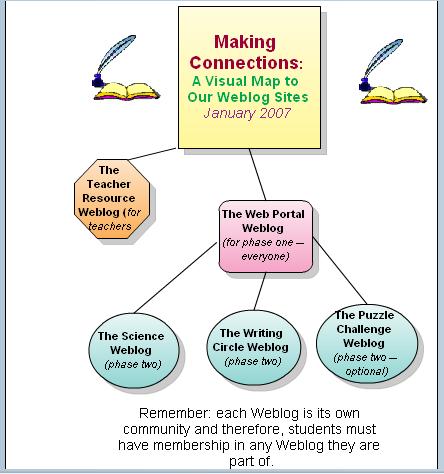Yesterday, I posted some of the writing from teachers in a workshop that I was leading in which they were asked to create a short Technology Autobiography. So, of course, I had made my own too.
Here it is:
It was the mid-1990s and I was standing in a third grade classroom when a shriek burst forth from one of the smallest girls in the room. She was standing by the only computer in the room, pointing to the small screen.
“It’s Mr. M.,” she called out, and students rushed forward to crowd around the computer. They jostled one another to get a better look. “He sent us mail.”
Mr. M. was a science teacher at the city’s middle school but he owned a house in Costa Rica, and on academic sabbatical, Mr. M. was doing research on the migration of Monarch butterflies. Before he left the country, however, he made contact with various elementary school teachers and students, and he regularly emailed them updates on his adventures and his research into the butterflies. Students used this information as data for their own understanding of science.
As a newspaper reporter covering education for a major newspaper in Western Massachusetts, I experienced one of those singular moments when the merging of technology and education suddenly seemed like a true possibility. The excitement generated by a few lines of text was undeniable and it was clear that technology had the capacity to break down geographic lines.
Suddenly, for these students, Costa Rica wasn’t so far away.
Since then, I have moved into teaching myself, and through the Western Massachusetts Writing Project, I have become a technology leader for teachers in our network. But it all began during my own Invitational Summer Institute, when I started using a Weblog to connect with other members of the institute and the e-Anthology to connect with teachers from across the country. There seemed to be power there in the connections being made between writers and readers, and I went back to my sixth grade classroom that fall with plans to launch a Weblog in the classroom.
Over the past three years, that site (called The Electronic Pencil) has grown by leaps and bounds and I am now leading a larger Weblog project for schools across Western Massachusetts called Making Connections as a way to help other teachers experience the same power of technology for their students.
Now I am blogging on a personal level, too, with this site and I have found that it has given me a different voice that allows me to move through my interests such as music, writing, poetry and curiosity. This year, I added podcasting and videocasting to the mix and found that the multi-media elements of this technology gives me avenues of expression that weren’t there before. I am not sure if technology is changing who I am as a writer, but it has certainly given me more creative outlets to explore and discover. And what I learn on my own, I bring back to my classroom and to our network of teachers in the Writing Project.
I am not sure what the future holds for technology and writing, but I am ready and willing to explore it all.
Peace (with reflection),
Kevin


